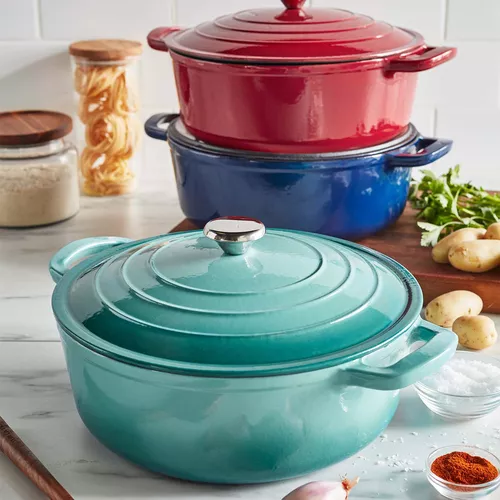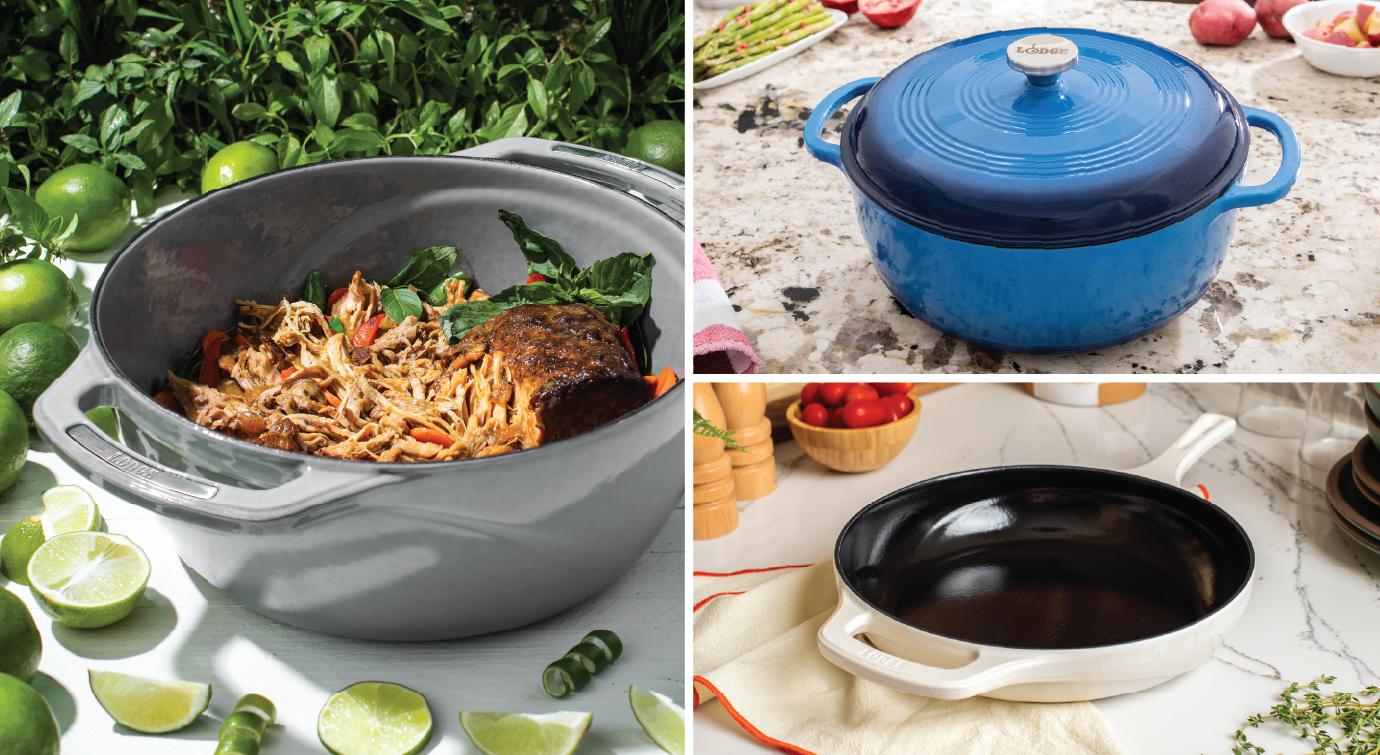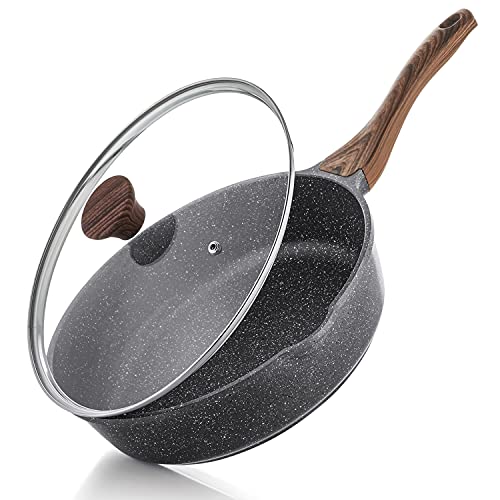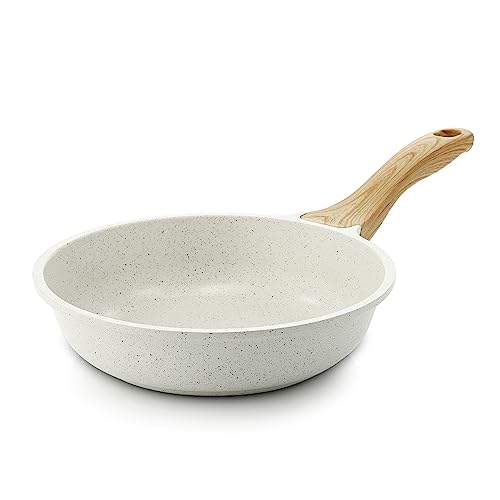Enameled cast iron is a versatile, durable type of cookware designed for both home cooks and kitchen professionals. This material combines the incredible heat retention and distribution properties of traditional cast iron with a glass-like, enamel coating that makes it resistant to rust and eliminates the need for seasoning. But what makes enameled cast iron unique, and why is it a staple in professional kitchens? Let's dive deeper!

How Does Enameled Cast Iron Work?
The base of enameled cast iron is regular cast iron, which is prized for its ability to retain and evenly distribute heat. However, traditional cast iron requires ongoing care like seasoning (a layer of oil baked into the surface) to prevent rusting. Enameled cast iron solves this issue by adding a layer of enamela smooth, non-porous coatingthats baked onto the surface of the iron at high temperatures.
This seamless coating protects the iron from rust and makes the cookware easier to clean, non-reactive to acidic foods, and visually appealing, often featuring an array of vibrant colors. Popular brands like Le Creuset and Staub have perfected the art of producing enameled cast iron cookware, making it both functional and stylish for any kitchen.
Benefits of Using Enameled Cast Iron in Professional Kitchens
Heat Retention and Distribution
One of the primary reasons why professional chefs favor enameled cast iron is its superior heat retention and even heat distribution. This quality makes it ideal for slow-cooking dishes like stews, braises, and soups. The enamel coating further ensures that the heat is maintained without hot spots, critical for complex and delicate recipes.
Non-Reactive Surface
Unlike traditional cast iron, which reacts when cooking acidic foods like tomatoes or wine-based sauces, enameled cast iron is non-reactive. Its enamel coating acts as a barrier between the food and the underlying iron, ensuring the flavor remains untainted.
Ease of Maintenance
Caring for enameled cast iron is a breeze compared to traditional cast iron. Theres no need for tedious seasoning or worrying about rusting. Simply use mild soap and water to keep it clean. For tough stains, a gentle baking soda soak works wonders. Read more about proper cleaning techniques on Lodge Cast Iron's Care Guide.
Durability and Longevity
When cared for properly, enameled cast iron cookware can last for generations. Its robust construction can withstand high temperatures and frequent use, whether it's in a busy restaurant setting or at home, crafting elaborate family meals.
Choosing the Right Enameled Cast Iron Cookware
Not all enameled cast iron products are created equal. Whether you're buying your first Dutch oven or adding a skillet to your arsenal, consider the following:
Size and Shape
Different dishes require different cookware shapes. For soups and braises, a round or oval Dutch oven is ideal. For searing or frying, a shallow skillet works best. If youre wondering, what size Dutch oven do I need? Culinacooks has a helpful guide.
Enamel Finish
High-quality enamel should feel smooth and free of chips. Look for cookware with a glossy, durable finish that can handle the daily wear and tear of a professional kitchen.
Brand Reputation
Brands such as Le Creuset, Staub, and Lodge have long been revered for their craftsmanship and quality. While these options can be pricier, they are worth the investment for their longevity and performance.
Pro-Tips for Cooking with Enameled Cast Iron
Here are some best practices to maximize your experience with this exceptional cookware:
Preheat Gradually
Avoid subjecting enameled cast iron to sudden temperature changes. Gradual heating prevents thermal shock, which could damage the enamel coating.
Use Wooden or Silicone Utensils
To protect the enamel from scratches, stick to wooden or silicone tools when cooking rather than metal utensils.
Avoid High-Heat Cooking
While enameled cast iron can tolerate high temperatures, medium or medium-high heat usually suffices due to its excellent heat retention.
Resistant Yet Careful Cleaning
For thorough instructions on cleaning and maintaining enameled cast iron, check out this how-to guide.

FAQ
Is enameled cast iron better than traditional cast iron?
Enameled cast iron is better for those who prefer low-maintenance cookware that is easier to clean and doesnt require seasoning. However, traditional cast iron excels in versatility and tolerates higher cooking temperatures.
Can enameled cast iron be used on all cooking surfaces?
Yes, enameled cast iron works on gas, electric, induction, and even in ovens up to certain temperature limits. Always check the manufacturer's guidelines.
Why do professional chefs prefer enameled cast iron?
Its even heat distribution, durability, and non-reactive surface make it an indispensable tool in professional kitchens.
For more tips on optimizing your cooking with cast iron, read our post on cooking pot roast.
This article contains affiliate links. We may earn a commission at no extra cost to you.






Leave a comment
This site is protected by hCaptcha and the hCaptcha Privacy Policy and Terms of Service apply.